Pakistan's Top 10 Jet Fighters: Aviation Power, History, and Service in War
Pakistan's Air Force stands as a cornerstone of national defense, integrating Army Aviation support with advanced fighter jets that weave a compelling story of military power and authority. From historical wars to modern service, these aircraft highlight Pakistan's aviation history and readiness for conflict.
Qasim Ali
8/16/20256 دقيقة قراءة
1. Chengdu J-10C Vigorous Dragon: Pinnacle of Aviation Power
he J-10C is Pakistan’s most advanced fighter, symbolizing aviation authority and Sino-Pakistani collaboration in war.
Max Speed: Mach 1.8 (~2,222 km/h).
Total in Current Service: 36 aircraft.
Cost per Jet: ~PKR 11.2 billion (USD 40 million, based on export pricing).
Total Fleet Cost: ~PKR 403.2 billion.
Weapons Used:
PL-15 BVR Missiles: Range 200 km, made by China's Luoyang Electro-Optical; ~240 in service.
PL-10 Short-Range Missiles: Shanghai Academy of Spaceflight Technology; hundreds in inventory.
LS-6 Precision-Guided Bombs: China Aerospace Science and Industry; ample stocks.
Manufacturing: Advanced Chinese radar-homing and precision guidance systems.
Role in History and Service: Introduced in 2022, the J-10C enhances air superiority, integrating with Army operations.
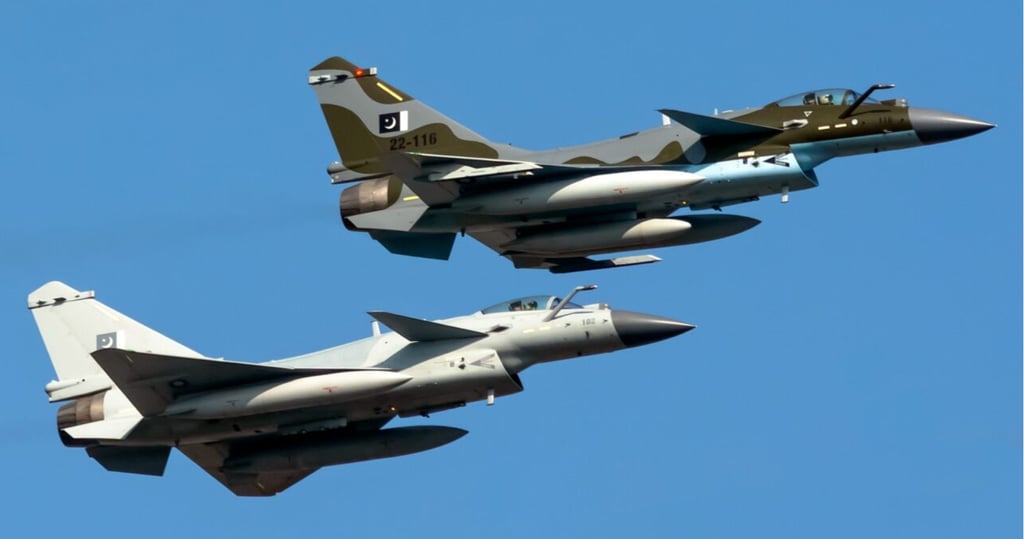

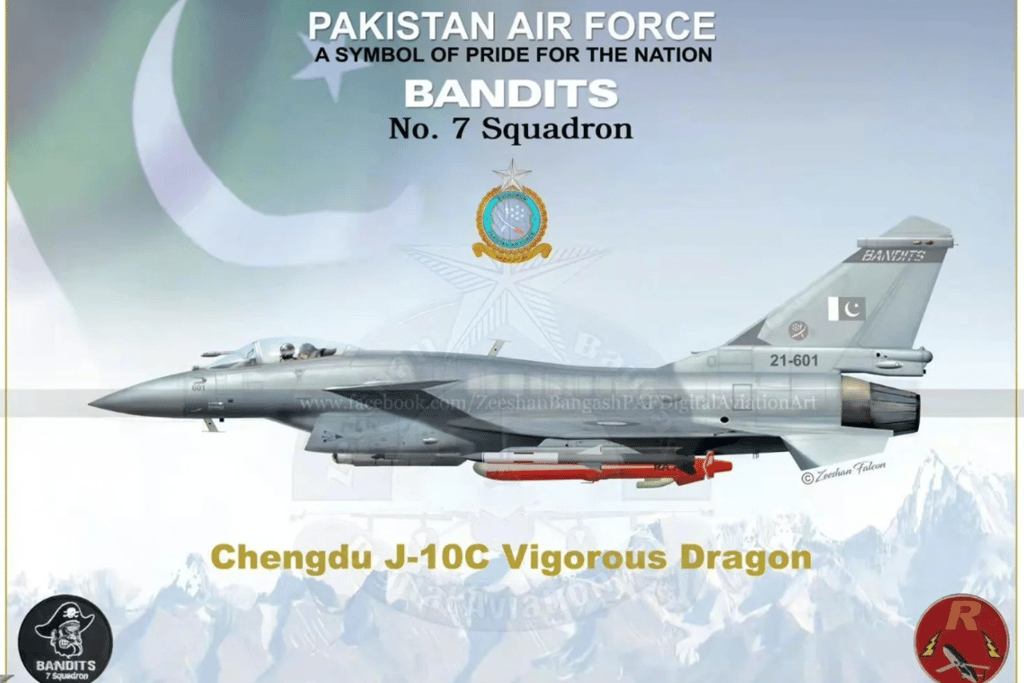

J-10C of the 7th Bandits Squadron, a hypothetical J-10C image (Social media)
2. PAC/CAC JF-17 Thunder Block 3: Backbone of War Power
The JF-17 Block 3 is Pakistan’s pride, a story of indigenous aviation power in service and war.
Max Speed: Mach 1.6 (~1,975 km/h).
Total in Current Service: 50 aircraft (part of 156 total JF-17s).
Cost per Jet: ~PKR 7 billion (USD 25 million, co-production cost).
Total Fleet Cost: ~PKR 350 billion.
Weapons Used:
SD-10A/PL-12 BVR Missiles: 70-100 km range, co-made by PAC and Luoyang; ~500 in service.
PL-5E Short-Range Missiles: China Aerospace Science and Technology; thousands in stock.
Ra'ad Cruise Missiles: Pakistan’s Air Weapons Complex; ~100 in service.
Manufacturing: PAC Kamra’s assembly with Chinese avionics.
Role in History and Service: Upgraded for 4.5-generation capabilities, supports Army Aviation in multirole missions.
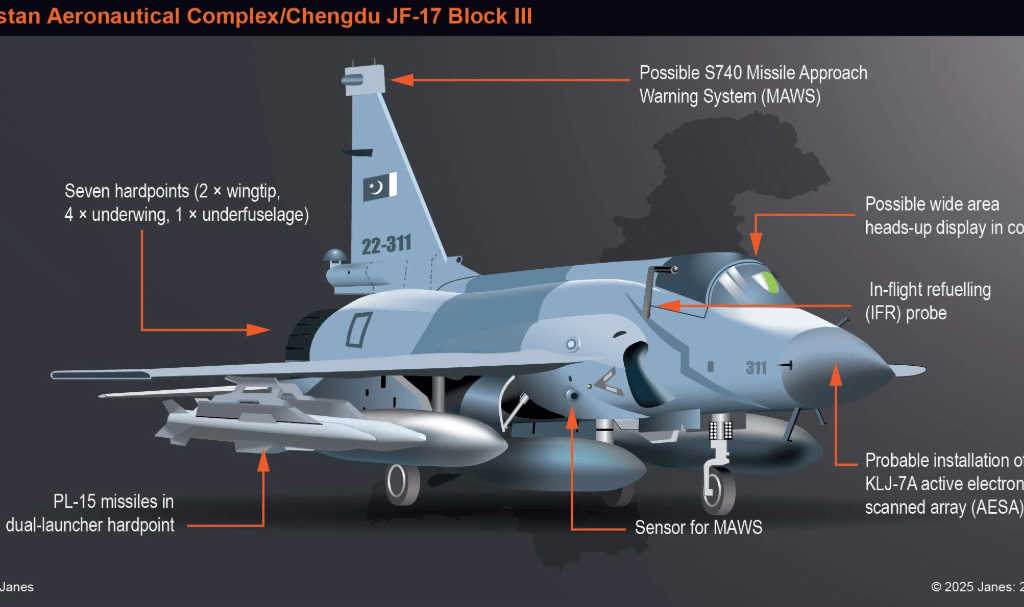

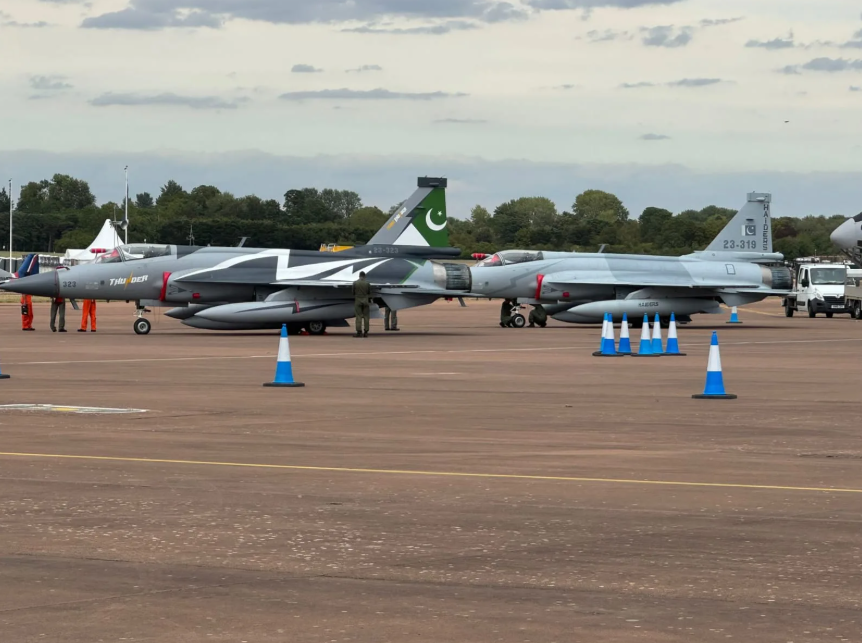

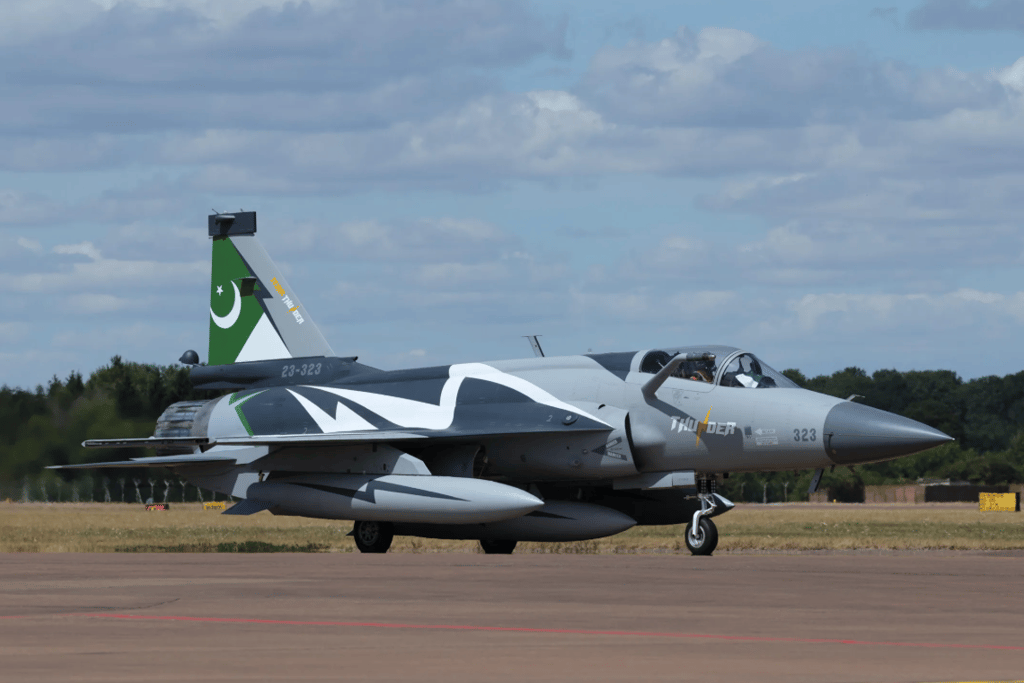

A rendering of a Pakistan Aeronautical Complex/Chengdu Aircraft Company JF-17 Block III recently seen equipped with PL-15 missiles. (Janes)
3. Lockheed Martin F-16 Fighting Falcon Block 52: American-Sourced Authority
The F-16 Block 52 is a combat-proven veteran, embodying aviation power in Pakistan’s service.
Max Speed: Mach 2+ (~2,470 km/h).
Total in Current Service: 18 aircraft (part of 75 F-16s).
Cost per Jet: ~PKR 16.8 billion (USD 60 million, modernized).
Total Fleet Cost: ~PKR 302.4 billion.
Weapons Used:
AIM-120 AMRAAM BVR Missiles: 100+ km, Raytheon (USA); ~200 in service.
AIM-9 Sidewinder Missiles: Raytheon; hundreds in inventory.
JDAM Precision Bombs: Boeing (USA); sufficient for squadrons.
Manufacturing: US precision engineering with inertial navigation.
Role in History and Service: Since the 1980s, pivotal in Army coordination and war.
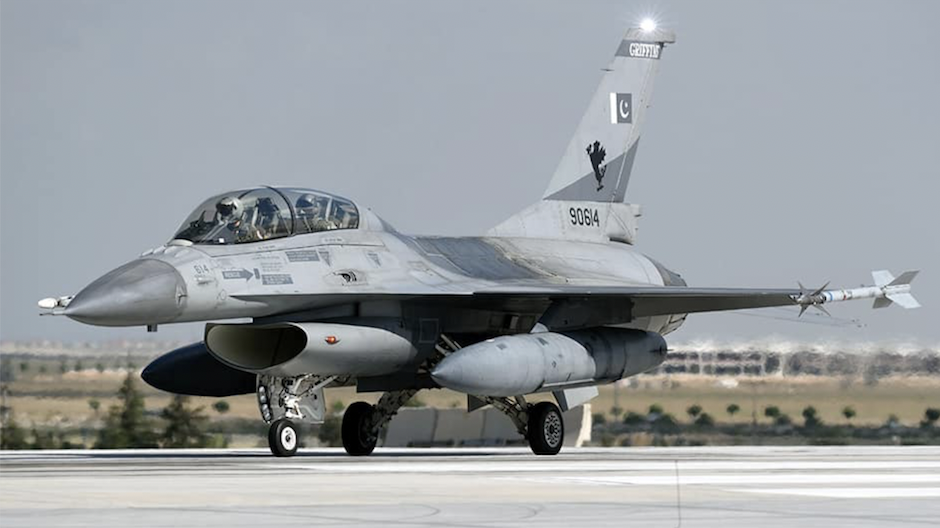

Pakistani Air Force F-16 Fighting Falcon(militarywatch)
4. PAC/CAC JF-17 Thunder Block 2: Versatile War Asset
Block 2 strengthens Pakistan’s aviation story with reliable power in war.
Max Speed: Mach 1.6 (~1,975 km/h).
Total in Current Service: 62 aircraft.
Cost per Jet: ~PKR 5.6 billion (USD 20 million, local production).
Total Fleet Cost: ~PKR 347.2 billion.
Weapons Used:
PL-12 Missiles: Pak-China production; integrated stocks.
C-802 Anti-Ship Missiles: China Aerospace Science; dozens in service.
Laser-Guided Bombs: PAC Kamra; ample stocks.
Manufacturing: Cost-effective Pakistani facilities.
Role in History and Service: Deployed for border defense, supports Army in aviation exercises.


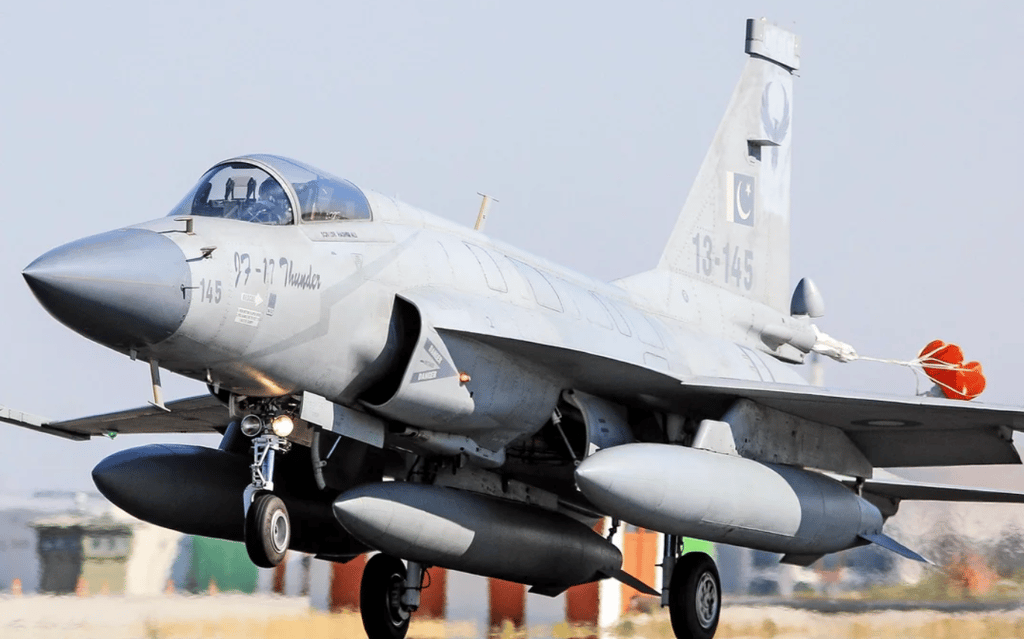

5. Lockheed Martin F-16 Fighting Falcon A/B MLU: Upgraded Authority
Mid-life upgrades keep the F-16 A/B a force in Pakistan’s aviation history.
Max Speed: Mach 2 (~2,470 km/h).
Total in Current Service: 54 aircraft.
Cost per Jet: ~PKR 8.4 billion (USD 30 million, post-MLU).
Total Fleet Cost: ~PKR 453.6 billion.
Weapons Used:
AIM-120 and AIM-9 Missiles: Raytheon; shared with Block 52.
HARM Anti-Radiation Missiles: Raytheon; limited stocks.
Manufacturing: US precision engineering.
Role in History and Service: Modernized for extended service, aiding Army Aviation.
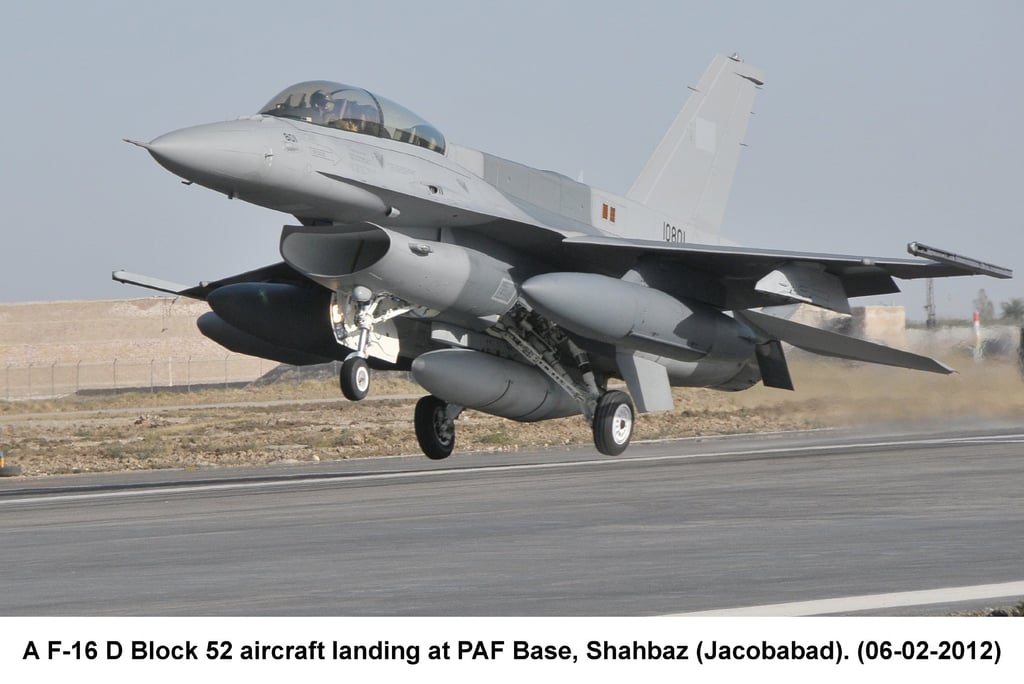

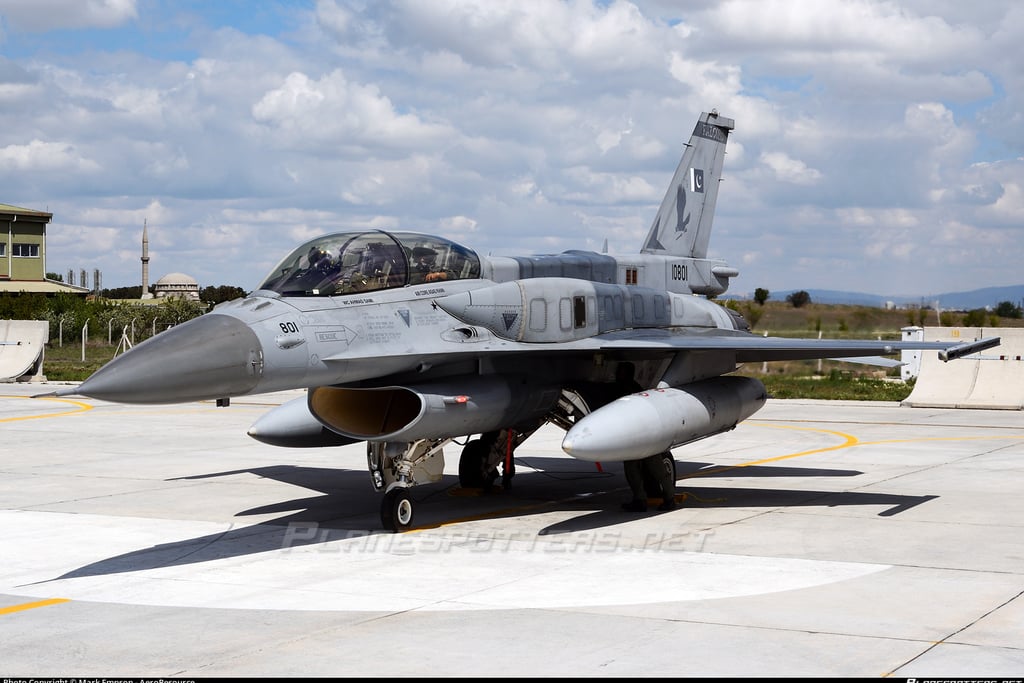

6. PAC/CAC JF-17 Thunder Block 1: Foundational Aviation Power
Block 1 laid the groundwork for Pakistan’s indigenous aviation power.
Max Speed: Mach 1.6 (~1,975 km/h).
Total in Current Service: 50 aircraft (upgrading to Block 3).
Cost per Jet: ~PKR 4.2 billion (USD 15 million, early production).
Total Fleet Cost: ~PKR 210 billion.
Weapons Used:
PL-5 and PL-12 Missiles: Pak-China; foundational stocks.
Conventional Bombs: Locally produced; transitioning.
Manufacturing: Early joint ventures at PAC Kamra.
Role in History and Service: Entered service in 2007, shifting aviation history.
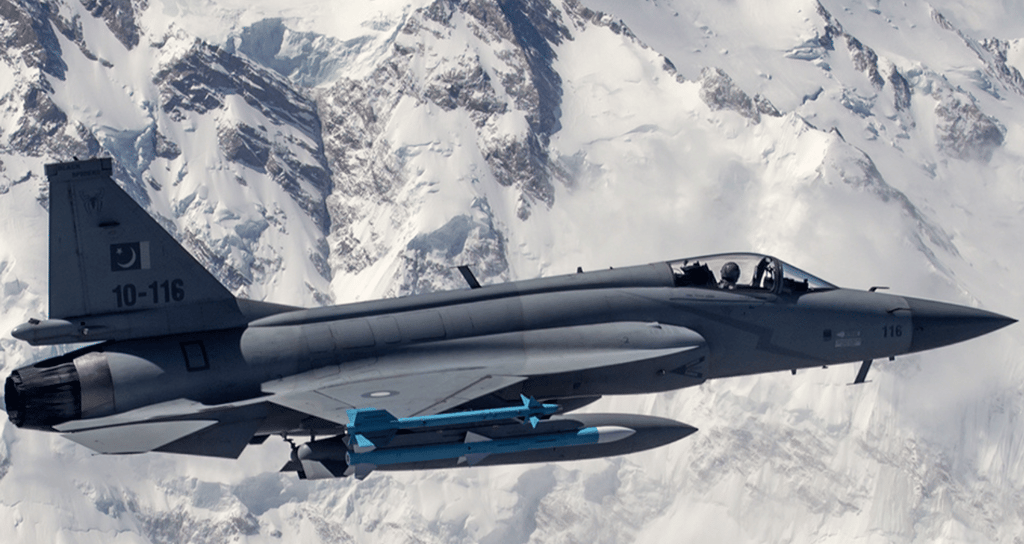

7. Dassault Mirage 5 ROSE: Strike Specialist in War
Project ROSE upgrades make Mirage 5 a strike specialist, vital in war.
Max Speed: Mach 2.2 (~2,718 km/h).
Total in Current Service: ~30 aircraft.
Cost per Jet: ~PKR 2.8 billion (USD 10 million, upgraded).
Total Fleet Cost: ~PKR 84 billion.
Weapons Used:
R.550 Magic Missiles: Matra (France); hundreds in aging stocks.
Exocet Anti-Ship Missiles: MBDA (France); dozens in service.
Free-Fall Bombs: French Cold War-era.
Role in History and Service: Key in night strikes, supporting Army power.
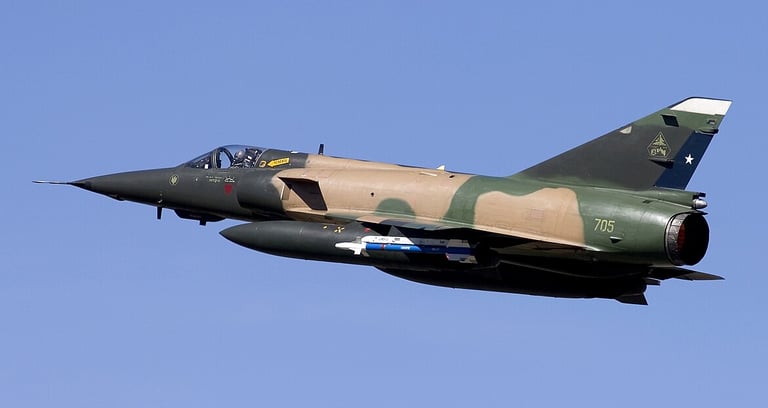

Dassault Mirage 5 ROSE (wikiwand)
8. Dassault Mirage III ROSE: Interceptor of Legend
ROSE upgrades maintain Mirage III’s authority in aviation history.
Max Speed: Mach 2.2 (~2,718 km/h).
Total in Current Service: 40 aircraft.
Cost per Jet: ~PKR 2.8 billion (USD 10 million, upgraded).
Total Fleet Cost: ~PKR 112 billion.
Weapons Used:
R.550 Magic Missiles: Matra; shared with Mirage 5.
ATLIS Laser Designators: French; limited units.
Manufacturing: Pakistani upgrades with French components.
Role in History and Service: A mainstay since the 1960s, vital in war.
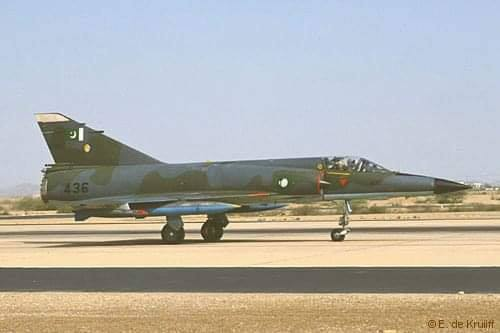

9. Chengdu F-7PG Skybolt: Agile Interceptor in Transition
The F-7PG is a cost-effective asset, transitioning in service.
Max Speed: Mach 2.2 (~2,718 km/h).
Total in Current Service: 53 aircraft.
Cost per Jet: ~PKR 1.4 billion (USD 5 million, legacy).
Total Fleet Cost: ~PKR 74.2 billion.
Weapons Used:
PL-7 Short-Range Missiles: China North Industries; hundreds in service.
Rockets and Bombs: Chinese mass production.
Role in History and Service: Phasing out, used in training and secondary war roles.
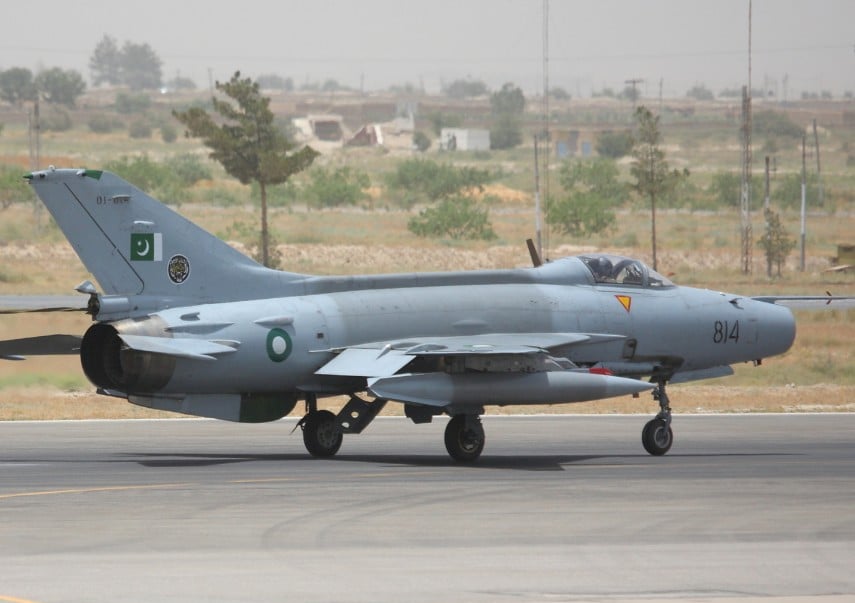

Chengdu F-7PG Skybolt (pafsqk.yolasite)
10. Dassault Mirage 5 (Standard): Reliable Ground Attack Asset
The base Mirage 5 supports Army operations with proven service.
Max Speed: Mach 2.2 (~2,718 km/h).
Total in Current Service: ~20 aircraft.
Cost per Jet: ~PKR 1.4 billion (USD 5 million, legacy).
Total Fleet Cost: ~PKR 28 billion.
Weapons Used:
Exocet and Magic Missiles: French; aging stocks.
Conventional Bombs: French manufacturing.
Role in History and Service: Focused on ground support, integral to aviation-Army synergy.
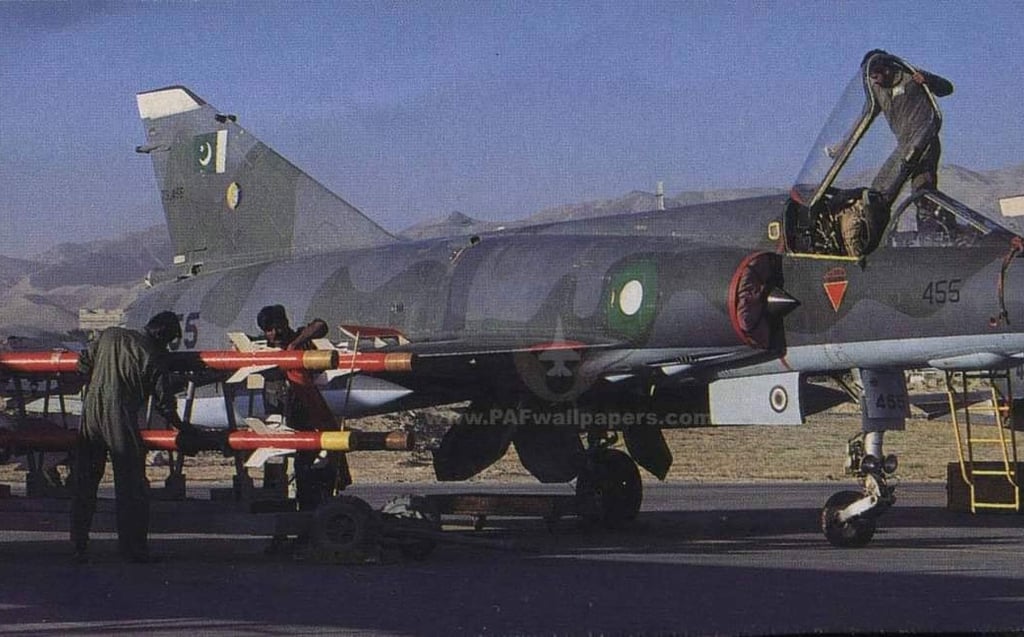

Jets Used in the 2025 Pakistan vs India War: Deep Detail on Aviation in Action
The 2025 India-Pakistan war (May 7-10) marked a pivotal chapter in aviation history, with Pakistan’s Air Force deploying J-10C and JF-17 Thunder jets in Kashmir. No Army Aviation helicopters were involved, but fighters showcased power and authority. Pakistan claimed five Indian jets downed (Rafales, MiG-29s, Su-30MKIs), while India reported six Pakistani losses (disputed).
J-10C in War: ~20 jets deployed, using PL-15 missiles (200+ km, Chinese-made) for long-range kills. AESA radars and electronic warfare disrupted Indian S-400s, downing two Rafales on May 7. Manufacturing: Chinese guidance tech. Source Image: J-10C Climb
JF-17 Thunder in War: ~30 jets (Blocks 2 and 3) used PL-12 missiles and bombs, downing three Indian jets. Co-produced at PAC Kamra, integrated with Army radar. Source Image: JF-17 Missiles
Outcomes: PL-15 (240+ in service) and PL-12 (500+) ensured air dominance, minimizing ground escalation in this war.
Future Fighter Jet Acquisitions: Pakistan’s Aviation Roadmap
Pakistan is enhancing aviation power for future wars, focusing on stealth:
Shenyang J-35A Stealth Fighter: 40 units from China (30 by late 2025, full by 2026), ~PKR 28 billion/jet, total ~PKR 1,120 billion. Features PL-17 missiles (400 km). Source
Additional Chengdu J-10C: 12-18 jets from China, ~PKR 11.2 billion/jet, total ~PKR 134.4-201.6 billion. Source
PFX Program: Indigenous 5th-gen fighter, prototypes by 2030, co-developed for aviation autonomy.